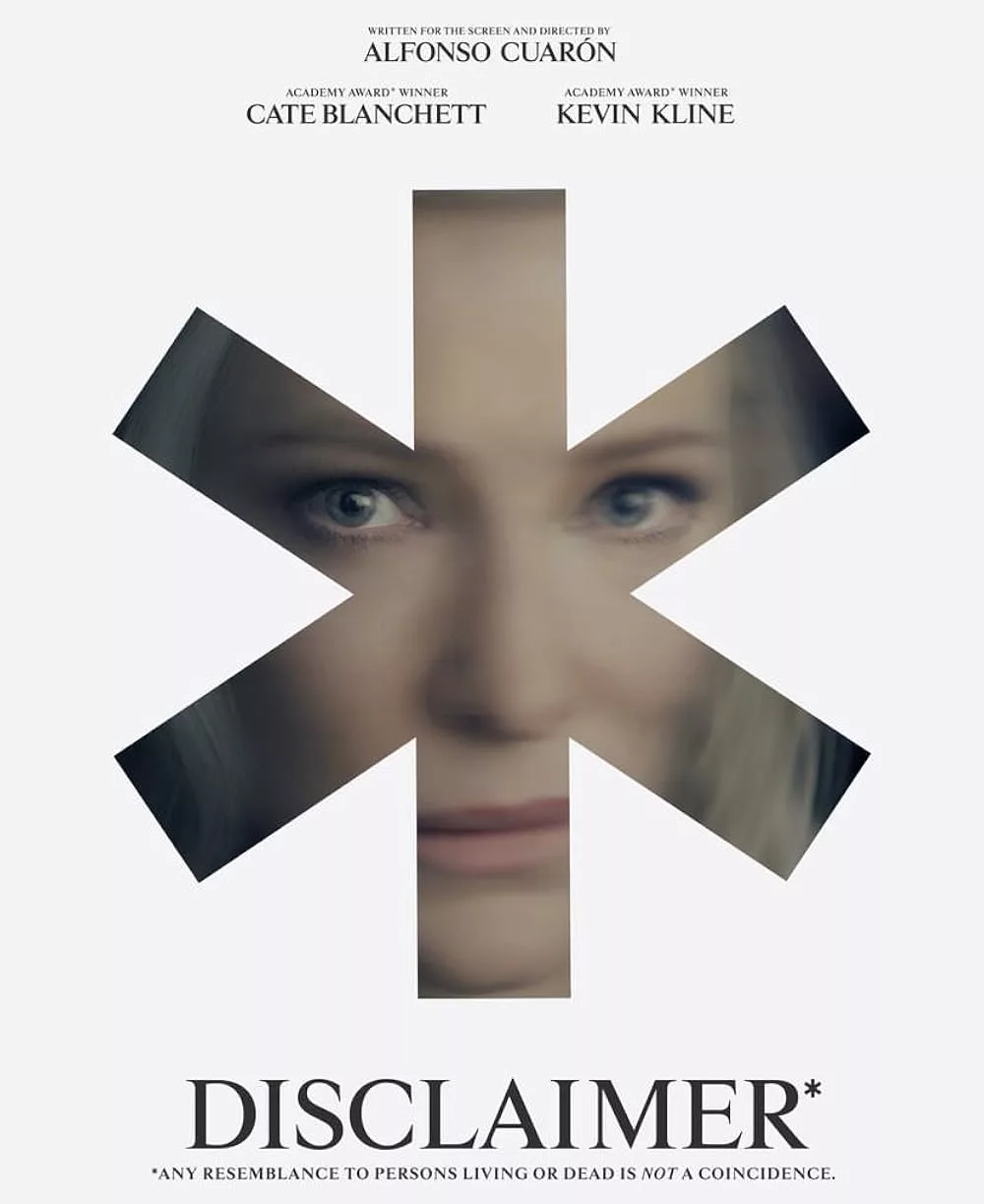“Beware of narrative and form,” Christiane Amanpour says of one of our protagonists, acclaimed documentary journalist Catherine Ravenscroft (Cate Blanchett), in the opening minutes of Apple TV+’s new series “Disclaimer.” “It can bring us closer to the truth, but also has the great power to manipulate.” Indeed, Alfonso Cuarón’s seven-part limited series for the streamer, an adaptation of Renee Knight’s 2015 novel, is a masterwork of form; the aim of its narrative, of course, is to manipulate. Not just its characters, mind you, but its audience, systematically unfurling a twin-poled tale of delectable revenge, and the glee with which we both partake in and witness it. And, like so many Apple TV+ series before it, becomes a beautiful tapestry woven by one of our great filmmakers, with A-list talent in front of and behind the camera, that will undoubtedly be seen by too few by virtue of where it’s streaming.
When we first meet her, Ravenscroft is on top of the world: She has a fawning husband, Robert (Sacha Baron Cohen, stone-faced and obsequious), a healthy, if unambitious and troubled son, Nicholas (Kodi Smit-McPhee), and a robust career at the top of her field. But all that threatens to come crashing down when a book arrives on her doorstep: “The Perfect Stranger,” with a disclaimer Catherine treats with caution: “Any resemblance to persons living or dead is not a coincidence.”
The more she reads, the more she recognizes: the protagonist is her, recounting an unpleasant chapter twenty years prior, when she (Leila George) struck up an affair with a much younger man, Jonathan (Louis Partridge), while vacationing in Italy with Nicholas, then a toddler. We learn that Jonathan later died saving Nicholas’ life, which offered Catherine the perfect excuse to keep her dalliance a secret. Now, thanks to this book, her life and reputation can be thrown into turmoil.
And who’s responsible for such a tumultuous tome? Stephen Brigstocke (Kevin Kline), an over-the-hill private school teacher and Jonathan’s father. Where Catherine’s life is one of glamour and prestige, his is a humble, run-down existence; his wife, Nancy (Lesley Manville in flashbacks), passed some years prior, and he holes himself away from the world, lost in her remaining belongings alongside nude photos of Catherine that corroborate the story. It’s Nancy who wrote the manuscript, a supposition based on those photos and what she knows of events. Upon finding it in a faraway drawer, Stephen chooses to get it published—to punish the woman responsible for destroying his family.
Fair warning, dear reader: “Disclaimer” is not a cozy watch. Over its seven chapters, we witness the unmaking of a woman and the devilish glee with which an embittered old man goes about it. Cuarón’s lyrical script and elegant direction toy with expectation and assumption, drawing you into one perspective before flashing to another. (Visually, there are shades of “Y tu mamá también”‘s warm, handheld sexuality in its gauzy, soft-focus flashbacks to Italy, “Children of Men”‘s long-take bleakness in the present-day stretches; cinematographers Bruno Delbonnel and Emmanuel Lubezki seemingly pass the visual baton between them.) It feels like watching a war being waged; with each new copy of Stephen’s book landing in the hands of a new friend, or loved one, or colleague, we see it land like a bomb in Catherine’s life. In response, she grows more and more defensive, unable to explain her crimes away, which only compounds her guilt in the eyes of her accusers. And then, we cut to Stephen, barely hiding a Cheshire cat grin as his trap closes more and more tightly.
Both Blanchett and Kline are superlative in their roles, orbiting each other as a binary star of white-hot resentment. Shades of “Tár” obviously abound with Blanchett, playing yet another powerful woman lashing out at her own unexpected cancellation. But Kline toys delicately with Stephen’s channeling of grief (his puttering around the house wearing Nancy’s moth-bitten pink cardigan, her favorite) into the “Oldboy”-like long game he wishes to play with Catherine.
It’s unrelenting, and deliberately so; “Disclaimer” is a portrait of pain, and the fingers we point when we need to direct that pain elsewhere. It also points the finger back at us, frankly, and the Stephen-like joy we and others can derive from seeing someone we deem lesser, someone we deem bad get their just desserts. Sometimes, it posits, we may be all too happy to join the booing crowd, even (or especially) if it gives us the chance to take someone privileged down a peg. But all this grimness can sometimes threaten to pull you under; there’s no lightness to really soften the blow, especially as it spirals towards its inevitable, table-turning conclusion. I can’t see much room for escape, apart from the steamy eroticism of the Italy flashbacks (filtered through the subjective narrative of the novel within a story), glimmers of an exciting fling whose impact ripples through decades of grief and secrets.
But no one comes to “Disclaimer” looking for solemnity, nor will you find it. Instead, it’s an elegantly woven tapestry of torment, which grips you by the head and forces you to stare at the trainwreck of two people’s lives, caught in the riptide of pain. What’s worse, you’ll see in stark, crisp detail how the drowning will pull anyone in their vicinity under the current in desperation. It is said, after all, that, before you seek revenge, you must dig two graves.
Whole series screened for review. First two episodes now on Apple TV+.




















